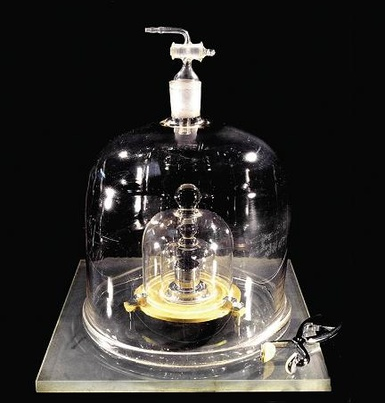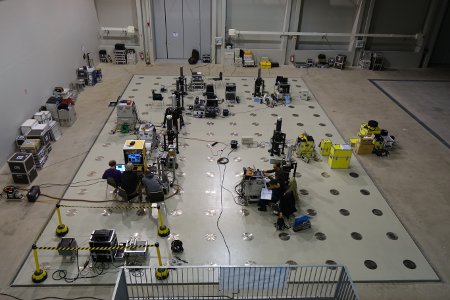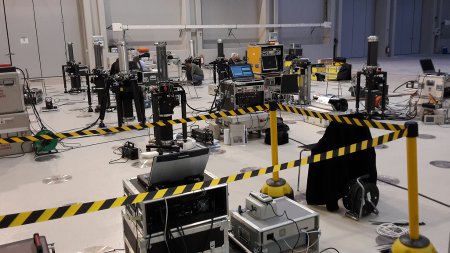The kilogram is the only remaining base unit of the International System of Units (SI) whose definition is based on a physical artefact rather than on fundamental properties of nature. This artefact is the international Prototype Kilogram, also named « K » (« Grand K »), which consists in a cylinder of platinum-iridium alloy kept at the Bureau International des Poids et Mesures (BIPM) in Sèvres, France. This current definition is quite limiting, especially because:
- The prototype is not perfectly stable and the amount it changes cannot be known perfectly: there is no «perfect» reference against which to judge it. However, long-term studies of the differences between selected 1 kg prototypes and K indicate that the long term variation of the kilogram could be as much as 5 parts in one billion per year.
- The value of the national copies cannot be monitored at the highest level of accuracy without being compared directly with K. The fact that a single artefact provides traceability for the entire mass scale world-wide presents a major logistic and resource problem. Notice that most national measurement institutes hold only one (on a total of about 90) official copy of the kilogram (Belgium holds the No 28 & 37).

Figure : International prototype « K » of the kilogram conserved at the Bureau International des Poids et Mesures in Sèvres, France (credit : http://www.bipm.org/en/bipm/mass/prototype.html).
To prepare the SI for the increasing needs of science and technology, a replacement of the kilogram based on fundamental constants is needed. A new definition should be considered if the expressed relating mass and fundamental constants reach a relative uncertainty of less than 1 part in one hundred million. The Watt balance experiment that aims at monitoring the kilogram by equating mechanical and electrical power. As the electrical power is measured in terms of the Josephson and the quantum Hall effects, the unit of mass can be linked to the Planck constant. On the other hand, the mechanical power depends on gravity, which must be accurately measured.
The absolute measurements of gravity are necessary in laboratories performing researches on the new definition of the kilogram. Those measurements are also essential to calibrate relative gravimeters. Hence, the absolute gravimeter of the Royal Observatory of Belgium acts as a standard, which is regularly compared to other instruments during international intercomparison campaigns. This is done collaborating with the International Committee for Weight and measures.


Figure: European comparison of absolute gravimeters (of which the gravimeter belonging to the Observatory) at the University of Luxembourg, November 2015.
